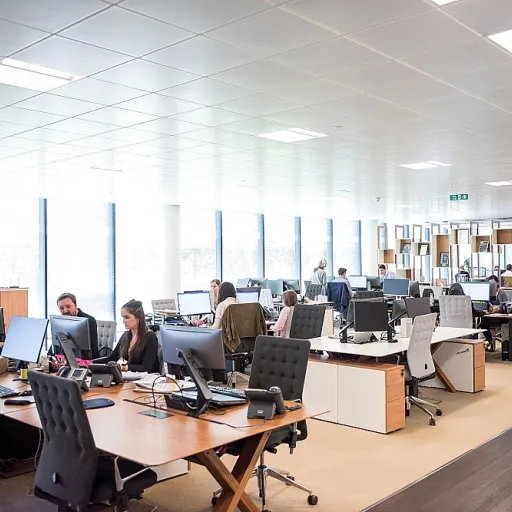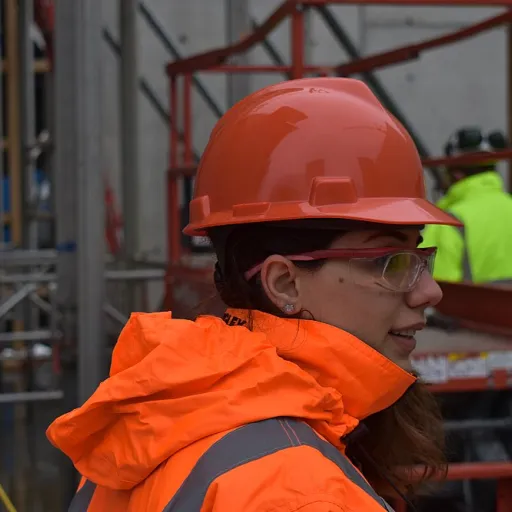
Understanding the Indian Retail Landscape
Exploring the Dynamics of Indian Retail
The Indian retail landscape is a vibrant and dynamic sector characterized by its diversity and scale. Spanning across traditional mom-and-pop stores to sprawling shopping malls and expansive e-commerce platforms, the sector is a crucial pillar of the Indian economy. The sheer size and diversity present unique challenges as retailers strive to maintain consistent operations across various geographical regions, each with its distinct consumer preferences and cultural nuances.
The success of retail projects in India heavily relies on understanding local markets while navigating the complexities of supply chain management. Retail chains often face hurdles in maintaining seamless inventory management, which is key to ensuring the right product availability at the right time. With each store differing in its customer demands, the ability to track sales data and efficiently allocate resources becomes a monumental task.
The Indian retail sector also contends with variations in consumer behavior and customer satisfaction expectations. Customers expect a personalized customer experience, demanding that retailers adapt and respond in real time to shifting preferences. This highlights the importance of evolving chain processes and refined project management techniques to ensure a smooth retail rollout process and optimize the use of available resources.
For office managers in Indian companies overseeing retail operations, the complexities of tracking numerous tasks and coordinating team members across various locations cannot be understated. Efficient team collaboration and effective resource allocation are essential to meet deadlines and ensure customer service standards. Organizations must adapt and optimize their existing practices to thrive in the bustling Indian retail market. Unveiling a deeper understanding of these intricate market dynamics is crucial to crafting strategies that not only enhance operational effectiveness but also elevate customer interactions and loyalty.
Strategic approaches in this evolving landscape can significantly impact how retailers manage their operations. For those interested in maximizing operational productivity, exploring customizable office spaces can contribute to a thriving operational environment.
Key Challenges in Retail Chain Project Management
Identifying Core Obstacles in Retail Projects
Managing retail chain projects in India presents a unique set of challenges that can impact the efficiency and success of operations. Understanding these obstacles is crucial for project managers aiming to enhance productivity and customer satisfaction.
Complexity of Inventory Management
Inventory management is a significant hurdle in retail projects. With a vast array of products to track, ensuring that inventory levels are optimized is essential. Mismanagement can lead to overstocking or stockouts, both of which can negatively affect sales and customer experience.
Supply Chain Coordination
The supply chain in retail is another area fraught with challenges. Coordinating between suppliers, warehouses, and stores requires precise timing and communication. Delays or miscommunications can disrupt the entire chain, affecting product availability and customer satisfaction.
Resource Allocation and Team Management
Effective resource allocation is vital for the success of retail projects. Project managers must ensure that team members are assigned tasks that match their skills and availability. This requires careful planning and real-time adjustments to keep projects on track.
Data Management and Utilization
Retailers often struggle with managing and utilizing sales data effectively. Accurate data analysis is crucial for making informed decisions about product offerings, customer preferences, and market trends. Without proper data management, retailers risk making decisions that do not align with customer needs.
Time Management and Scheduling
Time management is a critical component of project management in retail. Using tools like Gantt charts can help project managers visualize timelines and track progress. However, unexpected delays can still occur, requiring flexibility and quick problem-solving skills.
Addressing these challenges requires a strategic approach to project management, focusing on improving processes and leveraging technology to streamline operations. For more insights on enhancing productivity, consider exploring customizable office spaces as a potential solution.
Strategies for Effective Project Management
Adopting Smart Strategies for Retail Project Success
In the dynamic retail landscape of India, where customer satisfaction and inventory management are pivotal, effective project management becomes the backbone of successful retail projects. Project managers in retail face the intricate task of juggling various elements: from optimizing supply chain processes to ensuring seamless product rollout. One of the crucial strategies is precise resource allocation. Effective project managers ensure that team members are assigned tasks that match their expertise and availability. This not only streamlines processes but also enhances the overall customer experience when visiting stores or engaging with online platforms. Utilizing a Gantt chart can assist in keeping track of project timelines, tasks, and workflows. This visual tool enables project managers and retailers to monitor progress in real time, ensuring that every phase of retail rollout is on schedule, therefore boosting efficiency. At the heart of retail chain management is a detailed understanding of sales and inventory data. This knowledge allows project teams to make informed decisions on stocking and supply, thus preventing overstock or shortages. By effectively managing this data, retailers improve customer service by having the right products at the right time, simultaneously enhancing customer experience. An emphasis on continuous communication within the management services is critical. Encouraging open channels between team members fosters collaboration and helps address challenges promptly. As retail projects often involve varied teams and stakeholders, establishing a strong communication-based culture and synchronized efforts are imperative for achieving the desired outcomes. Embracing technology furthers strategic capability. By integrating project management software, businesses can enhance visibility and control over chain processes, ensuring that resources are leveraged efficiently. For more insights on enhancing efficiency with technological tools, you can explore this guide. Overall, employing these strategies not only navigates the nuanced challenges in project management but also fortifies the foundation for sustainable success.Role of Technology in Streamlining Operations
Leveraging Technology for Operational Excellence
In the fast-evolving retail landscape, technology serves as a catalyst for refining operational processes and enhancing overall efficiency. Project management in retail benefits significantly from digital tools and systems that streamline chain processes and ensure seamless coordination among project managers, team members, and partners.Implementing Advanced Inventory Management Systems
Efficient inventory management is crucial to maintaining customer satisfaction and optimizing supply chain processes. Modern inventory systems enable retailers to track product availability in real time, minimizing stockouts and overstock situations while ensuring that customer demands are met promptly. By analyzing sales data and supply patterns, retailers can predict demand more accurately, allowing more strategic resource allocation and planning.Utilizing Project Management Software
For effective project management in the retail sector, utilizing sophisticated project management tools can make a significant difference. Applications that offer Gantt chart capabilities help teams track the progress of retail projects, manage timelines, and allocate resources efficiently. These tools allow project managers to break down tasks into manageable units, assign responsibilities to team members, and monitor developments across the project lifecycle.Enhancing Customer Experience through Technology
Integrating technology doesn't just streamline management services; it also transforms the customer experience. Retailers can leverage customer data to personalize interactions, improve customer service, and foster brand loyalty. Technology enables retailers to provide unique experiences, whether through personalized recommendations or efficient in-store processes, ultimately boosting customer satisfaction.Facilitating Effective Coordination and Communication
Technology bridges the communication gap in the retail project management landscape, facilitating better collaboration among project managers, team members, and other stakeholders. Real-time communication tools and data-sharing platforms ensure that everyone is on the same page, coordinating efforts to meet project objectives and overcome challenges. Incorporating these technological advancements not only optimizes the retail rollout process but also paves the way for smoother chain management, ultimately enhancing the effectiveness of retail projects.Case Studies of Successful Retail Projects
Illustrative Examples of Success in Retail Initiatives
In the vast and diverse Indian retail landscape, several projects have stood out for their excellence in execution and outcomes. Let's explore some illustrative examples that demonstrate effective project management in retail chains.- Seamless Integration of Technology: A leading national retailer revamped its operations using a centralized cloud-based inventory management system. This enabled real-time tracking of inventory levels across multiple stores, ensuring optimum stock levels and reducing wastage. Project managers, utilizing Gantt charts, efficiently coordinated tasks, leading to optimized resource allocation. This project not only streamlined the supply chain but also enhanced customer satisfaction by ensuring product availability.
- Customer-Focused Retail Rollout: A chain focused on customer experience launched an extensive store revamp project, improving the layout for better customer service. The project management team employed data-driven insights to prioritize tasks that had a direct impact on customer satisfaction. By ensuring a collaborative approach among team members, the project successfully improved the overall shopping experience, resulting in increased footfall and sales.
- Supply Chain Optimization Initiative: An established retailer embarked on a project to overhaul its supply chain processes. By introducing advanced supply chain management technology, they successfully tackled key challenges such as delayed deliveries and inefficient resource utilization. This led to improved product turnover rates and enhanced customer service due to timely availability of products.
Future Trends in Retail Chain Project Management
Emerging Trends in Retail Chain Management
The retail landscape in India is rapidly evolving, with new trends shaping the future of project management in this sector. As retailers strive to enhance customer satisfaction and streamline operations, several key trends are emerging that project managers need to be aware of.
Integration of Advanced Technologies
Technology continues to play a pivotal role in transforming retail chain processes. The use of real-time data analytics allows project managers to track inventory and sales data more effectively, leading to better resource allocation and improved customer service. Gantt charts and other project management tools are becoming increasingly sophisticated, enabling teams to manage tasks and timelines with greater precision.
Focus on Customer Experience
Customer experience is at the forefront of retail projects. Retailers are investing in technologies that enhance the shopping experience, from personalized product recommendations to seamless checkout processes. This focus on customer satisfaction requires project managers to collaborate closely with customer service teams to ensure that every aspect of the retail rollout meets customer expectations.
Sustainability and Ethical Practices
As consumers become more conscious of environmental and ethical issues, retailers are prioritizing sustainability in their supply chain management. This shift requires project managers to incorporate sustainable practices into their projects, from sourcing materials to managing waste. The challenge lies in balancing these ethical considerations with cost-effectiveness and efficiency.
Agility and Flexibility in Project Management
In a dynamic retail environment, the ability to adapt quickly to changing market conditions is crucial. Agile project management methodologies are gaining traction, allowing teams to respond swiftly to new challenges and opportunities. This flexibility is essential for managing complex retail projects and ensuring timely delivery.
As the retail sector continues to evolve, project managers must stay abreast of these trends to effectively navigate the challenges and opportunities that lie ahead. By embracing technology, prioritizing customer experience, and adopting sustainable practices, retailers can enhance their project management strategies and achieve long-term success.













